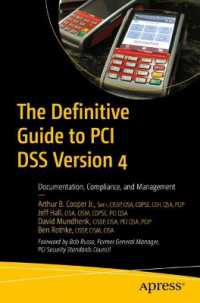- ホーム
- > 洋書
- > 英文書
- > Computer / General
Full Description
It highlights the potential of the Internet of Things (IoT) and blockchain technologies to address water-related challenges through secure data storage, decentralized information sharing, and real-time monitoring.








